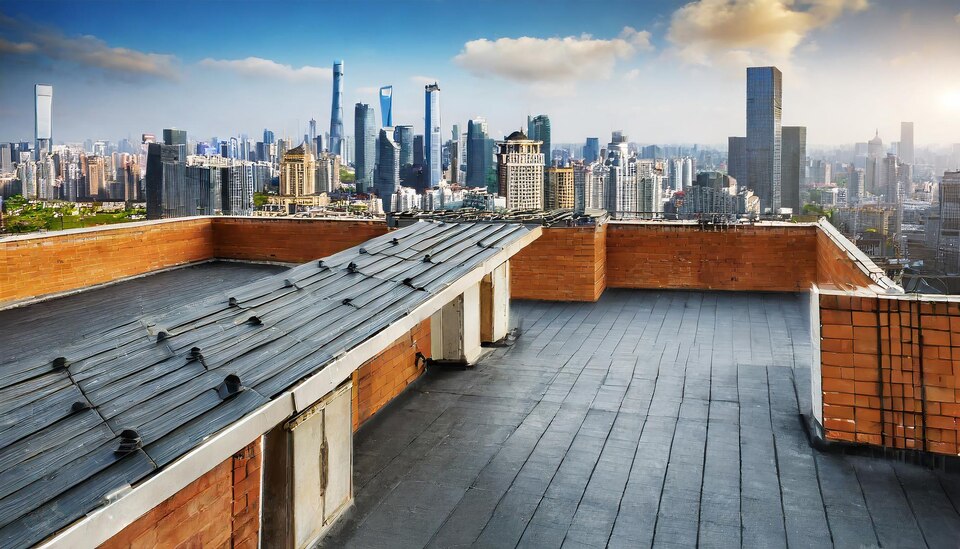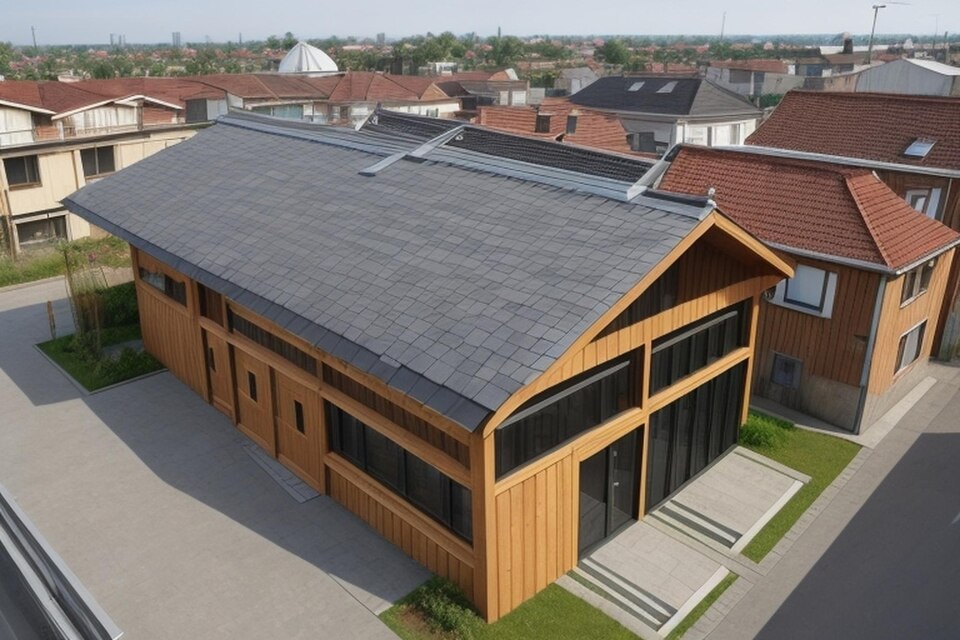Which Roofing Systems Are Used on Industrial Roofs?
If you’re curious about the different roofing systems used on industrial roofs, you’ve come to the right place. Industrial roofs are a unique challenge due to their size, complexity, and the need to withstand harsh environments. Let’s take a deep dive into the roofing options specifically designed for these structures.
Thermoplastic Olefin (TPO)
TPO roofing is a popular choice for industrial buildings due to its affordability, durability, and energy efficiency. It’s a single-ply membrane that’s resistant to UV rays, punctures, and chemical exposure. TPO comes in various thicknesses and colors, offering flexibility in design. Its reflective surface helps reduce cooling costs, making it an environmentally friendly option.
Polyvinyl Chloride (PVC)
PVC roofing is another single-ply membrane known for its exceptional durability and resistance to chemicals, fire, and wind. It’s often used in industrial settings where these factors are a concern. PVC roofs are heat-welded, creating strong, watertight seams. While it may be pricier than TPO, its longevity and minimal maintenance requirements can offset the initial cost.
Modified Bitumen
Modified bitumen roofing is a multi-layered system that combines asphalt with modifiers like rubber or plastic for enhanced flexibility and durability. It’s applied using heat or adhesives, forming a seamless, waterproof barrier. Modified bitumen roofs are known for their resistance to extreme temperatures and heavy foot traffic, making them suitable for industrial facilities with rooftop equipment or frequent maintenance.
Metal Roofing Systems for Industrial Applications
Standing Seam Metal Roofs
Standing seam metal roofs are a classic choice for industrial buildings. They’re renowned for their longevity, durability, and resistance to fire, wind, and hail. The panels interlock to create raised seams that shed water effectively, preventing leaks. Metal roofs can be customized in various colors and finishes, adding aesthetic appeal to the structure.
Metal Panel Roofs
Metal panel roofs offer versatility and affordability for industrial applications. They come in various profiles, including corrugated, ribbed, and standing seam. Metal panel roofs are lightweight, easy to install, and require minimal maintenance. They’re also energy-efficient, reflecting sunlight and reducing cooling loads.

Additional Roofing Options for Industrial Structures
Built-Up Roofing (BUR)
BUR is a traditional roofing system consisting of multiple layers of asphalt and reinforcing fabrics. It’s known for its waterproofing capabilities and ability to withstand harsh weather conditions. BUR roofs are often covered with gravel or a reflective coating to protect the underlying layers from UV damage and reduce heat absorption.
Spray Polyurethane Foam (SPF)
SPF roofing is a seamless, insulating system applied as a liquid that expands into foam. It forms a continuous barrier that adheres to the roof deck, eliminating seams and potential leak points. SPF provides excellent insulation, reducing energy consumption and costs. It’s also lightweight and can be applied over existing roofs, saving on demolition and disposal costs.
Green Roofs
Green roofs are an innovative and sustainable option for industrial buildings. They involve covering the roof with vegetation, soil, and drainage layers. Green roofs offer numerous benefits, including improved insulation, reduced stormwater runoff, enhanced air quality, and aesthetic appeal. They can also help mitigate the urban heat island effect, contributing to a more comfortable environment.
Factors to Consider in Choosing the Right Roofing System for Your Industrial Building
Selecting the appropriate roofing system for an industrial building involves considering several factors:
- Climate: The local climate plays a crucial role in determining the suitable roofing material. Factors like temperature extremes, precipitation, and wind patterns should be considered.
- Building Use: The intended use of the building will influence the roofing choice. Buildings with rooftop equipment or frequent maintenance may require specific roof types.
- Budget: Cost is always a consideration. Roofing systems vary in price, and it’s essential to balance initial costs with long-term maintenance and energy savings.
Pro Tip: Trust Apex Commercial Roofing for prompt commercial roofing emergency service, expert Rubber Roofing , and exceptional service in NJ.
Which Roofing Systems Are Used on Industrial Roofs?
A wide array of roofing systems are available for industrial roofs, each with its own advantages and considerations. Understanding the specific requirements of your building and consulting with roofing experts will help you make an informed decision.
Selecting the right roofing system safeguards your investment, lowers energy costs, and fosters a more sustainable environment. This exploration of TPO, PVC, modified bitumen, metal roofing, BUR, SPF, and green roofs merely scratches the surface of available options.
Take a look at their location below:
811 Church Rd #105,
Cherry Hill, NJ 08002,
United States
For professional roofing services, including commercial metal roof repair, we invite you to stop by or reach out to us.







